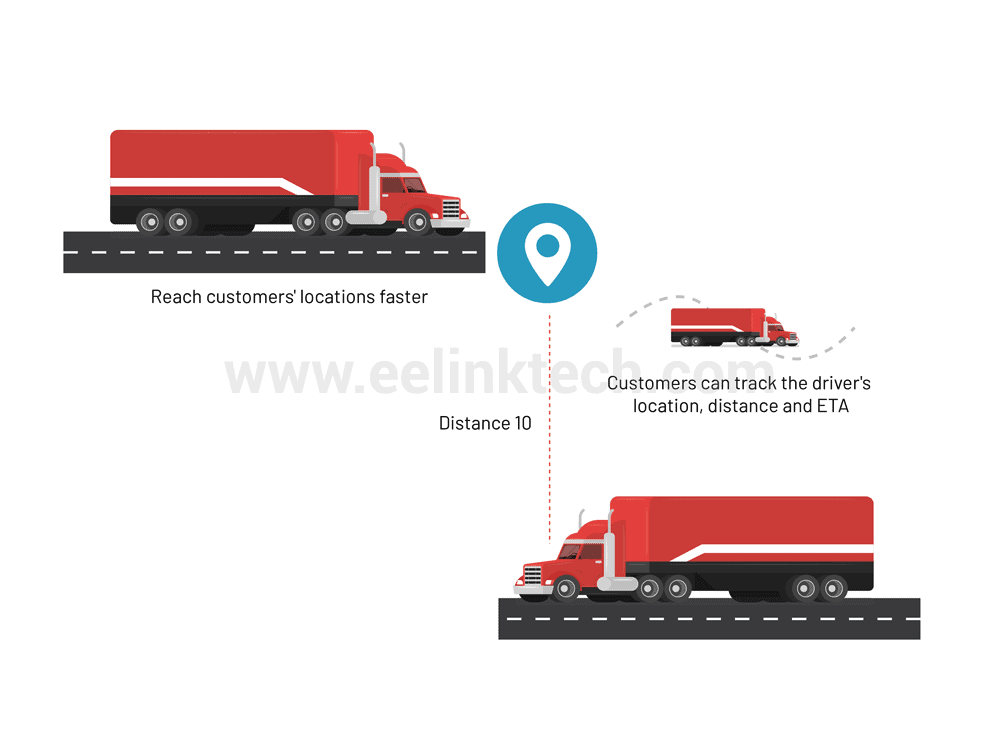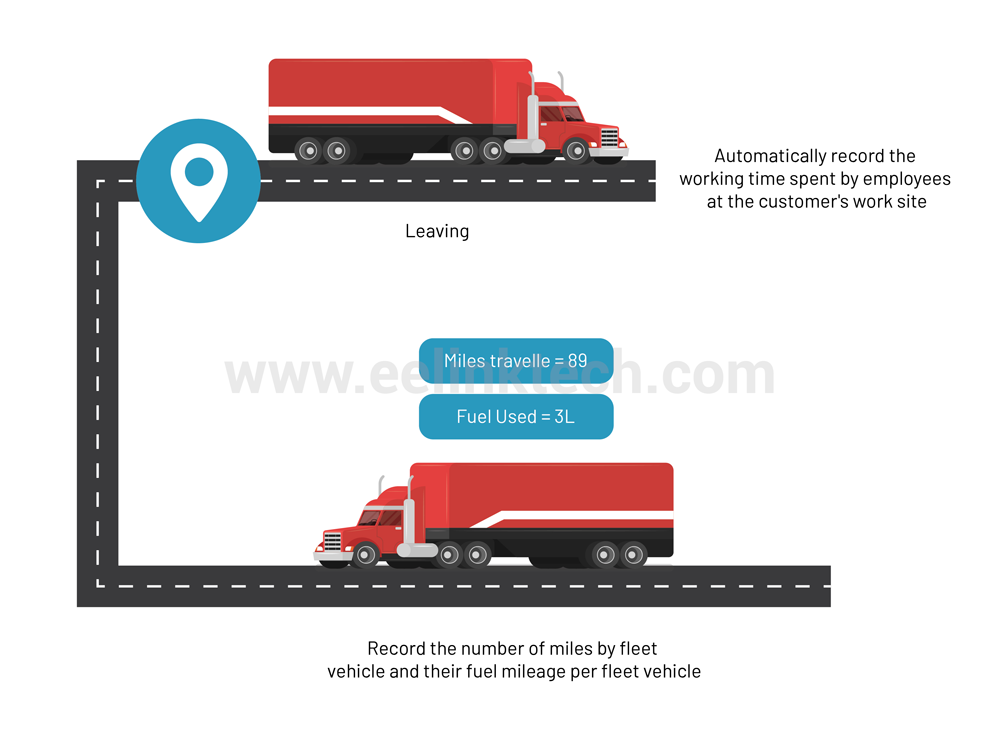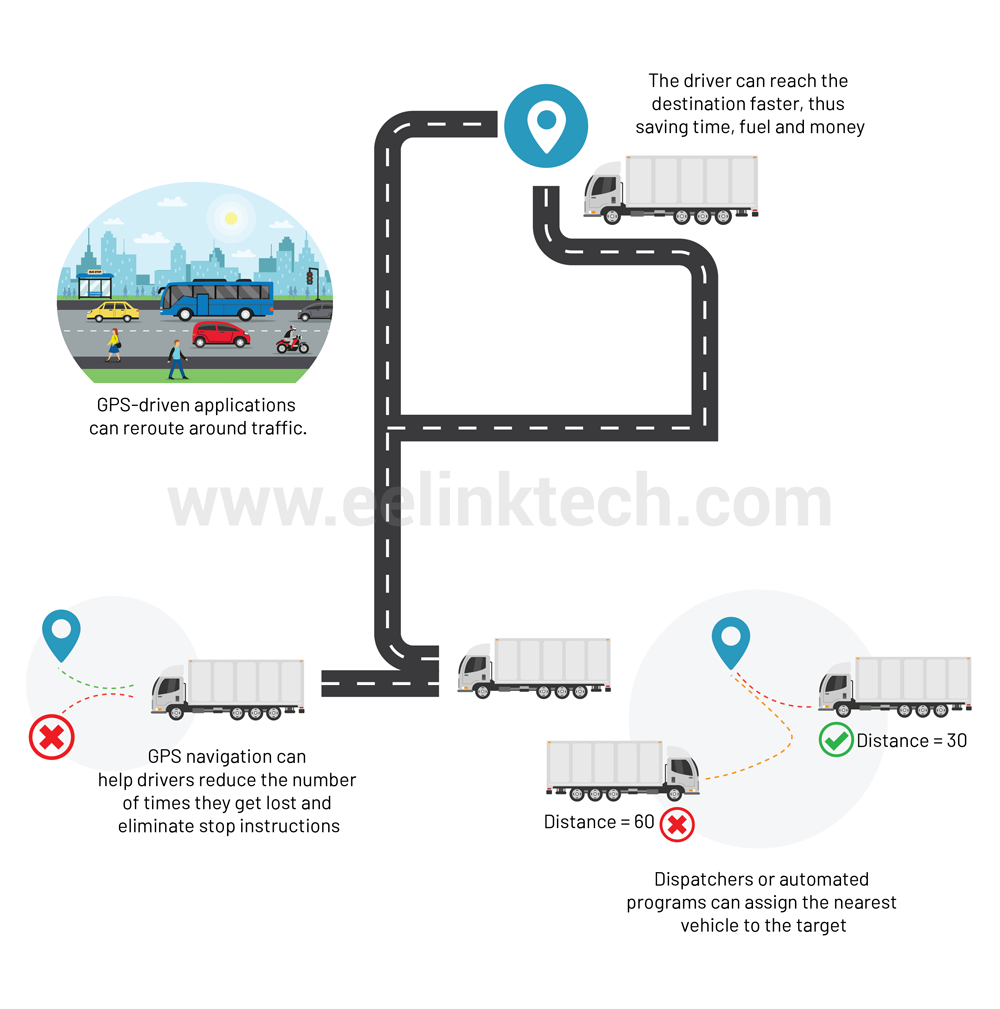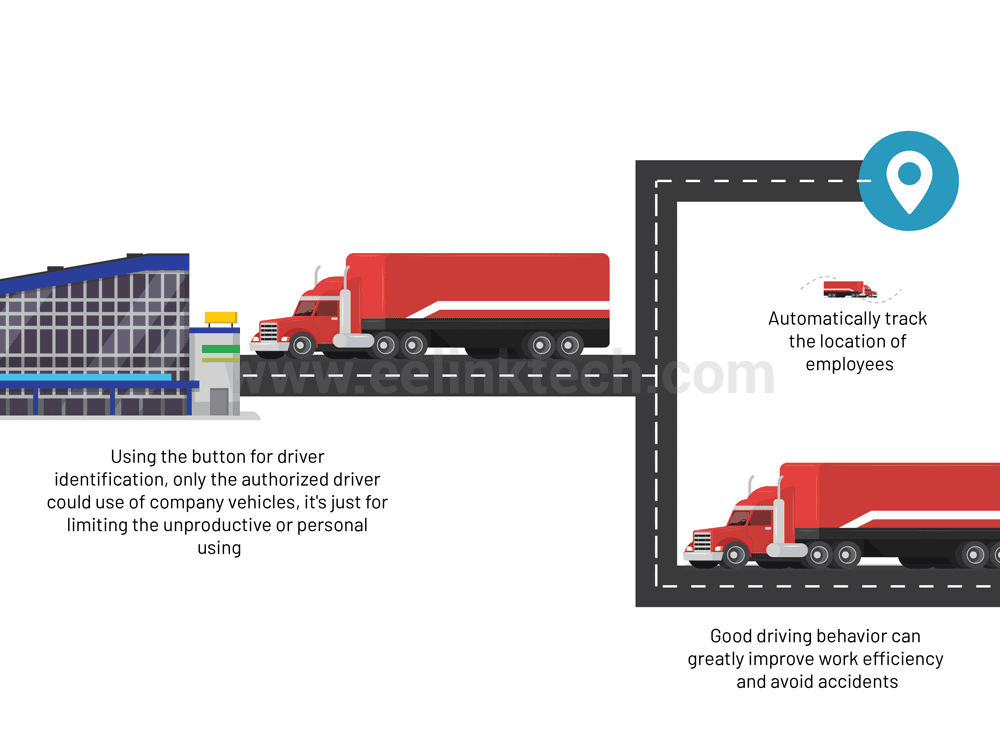Why Tracking Your Fleet Is No Longer Op-tional?
Are you thinking about installing tracking devices in your fleet? The fact is that in today’s business world, tracking each and every one of your business vehicles is essential for good business. Not only does this give you peace of mind regarding the whereabouts of your goods or staff, but it also ensures the safety of your fleet. As an added bonus, it helps you easily improve you customer service by allowing you accurate reporting of vehicle whereabouts.
Although there are numerous benefits to tracking your fleet, this may be a complicated decision to make. The good thing is that there is a lot of information out there on GPS tracking systems, their advantages and uses, and we have summarised it all for you here.
Types of GPS Trackers for Vehicles
Despite most people thinking that GPS tracking is always a satellite-based and that there is only one of maybe two types of trackers, the truth is that there are many different types of GPS trackers that mainly work on three types of technology namely Satellite, Cell and Bluetooth.
Cell-based trackers
Cell-based trackers evolved from cellular technology, where the foundation was laid by employers providing their drivers with cellphones so they could contact them and ask them where exactly they were. Newer technology has enabled employers to electronically track their vehicles by installing a separate cell-based GPS device in the vehicle, that automatically sends locality messages to a base system through registered cellphone networks. This enables the employer to check, at any time, on the locality of their vehicles for reporting purposes, but it can also trace stolen or missing vehicles which helps ensure the safety of staff, vehicles and goods.
This is a great option if your vehicles typically travel in cities and and towns where cellphone towers are easily accessible. This system works much faster than satellite-based systems, and is much cheaper to use. As a result, these are also more common.
Satellite-based trackers
Satellite-based GPS tracking systems were obviously developed to cover hard to reach places, where cellphone towers were few and far between. These systems work perfectly in very remote areas, and can even serve as an emergency call-for-help system where driver’s cellphones are not working.
Satellite based trackers are more expensive than cell-based ones, and tend to be a bit slower simply due to the signal travelling between satellites and ground level. Because of their satellite use – these trackers are also more expensive to use.
Bluetooth trackers
Bluetooth trackers are not nearly as strong as GPS or cell-based trackers, and typically have a range of less than 100 feet. These are however very useful in combination with one of the other tracking systems, as they can be used to track valuable goods on each vehicle – say for example tools or even goods being delivered.
These little devices can be linked to a cellphone device – such as the drivers, and can alert them when these valuable items are moved or removed. This can help prevent theft. As an added bonus, Bluetooth devices use very little energy to run, and have a battery life of nearly a year.
Whichever tracking device you choose to employ, they all offer a unique set of advantages that you should be aware of.
Advantages of GPS fleet trackers
Besides keeping track of your vehicles and goods, GPS trackers offer some additional advantages to your business that can not only save you time and money, but will also streamline your workflow.
- It increases productivity. This is very important because increased productivity means reduced costs and increased income. Traditionally, if you needed to know where a driver was, you or one of your staff would have to call him/her. This takes time from a staff member and interferes with your drivers concentration, which is a safety risk. With GPS tracking, there are less calls to drivers. Additionally, changing routes or delivery / pick-up priorities is much easier if you know where your vehicles are.
- It improves customer service. This goes without saying, but I will anyway. If a customer needs to know where a delivery or service vehicle is, it takes only seconds to answer them. Without GPS tracking, the driver would first have to be called to get a location, thereby delaying the response to the customer.
- It reduces insurance costs. Any safety features you install in your fleet will reduce your insurance costs and if your fleet is relatively large, these savings can be quite significant.
- It speeds up vehicle recovery. If a vehicle is lost or stolen, a GPS tracking device will significantly speed up the recovery process. When the authorities are involved, this information can simply be released to them, to help them recover you vehicle safely.
- It reduces admin work. Finally, we all know business always means admin, and the less we have to do of it the better for everyone. GPS tracking systems can provide a detailed report of the travels for each vehicle on a daily basis. This includes the routes taken, the stops made and the time taken for each of these. These reports can simply be included in administrative filing as a proper log of events.
Conclusion
So, to sum it all up – installing GPS tracking systems in your fleet vehicles is easy, will save you time and money and improve the safety of your fleet and staff. If you are convinced that tracking your fleet is a good business decision, you simply need to decide on the type of vehicle tracking device that is suited to your business, and you are good to go. Whether you choose a cell-based system for business in the city, or a satellite-based system for more remote travels, they will serve your business well. Your business vehicles are just as important to your business as your staff, service or goods, and with the perfect GPS vehicle tracker installed, you are not only ensuring your business future, but the well-being of your drivers and staff as well.




